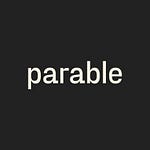One of my favorite topics is the future of operations, because it's on the rise, as a function and a concept. Founders are obsessed with scale, and the company-wide platform and glue that comes from a strong operations effort is pivotal to that scale. As a result, my hunch is that operations -- both in terms of roles with that title, as well as people more broadly who identify as systems thinkers -- is growing as a percentage of headcount. And that means that there are abundant career opportunities in this area.
One of those career opportunities is to develop a no-code skill set. Phil Lakin has built a vibrant community of no-code builders and more recently started a company called Switchboard that seeks to provide infrastructure for that community. In this conversation, Phil shares thought-provoking ideas about:
Given the maturation of the no-code space beyond a community of mere "tinkerers", what career paths now exist?
What are the best-of-breed products in the no-code stack?
What does the no-code space look like 5 years from now?
I hope you enjoy this conversation as much as I did, and feel free to reach out with any ideas or feedback for either Phil or me. Let's dive in!
If you’d like to hear more about scaling companies via operations, you can subscribe to my newsletter (for free) here:
Leadership Roles
As always, I’ll share a few leadership roles at companies I’m excited about:
Switchboard (Phil’s company!): Product Manager
LaunchNotes: Director of Engineering
Kingdom Supercultures: Head of People
Guide: Head of Marketing
Transcript
Allison: Phil, I'm so excited to have you on the podcast today. You are definitely an intellectual thinker when it comes to the no-code world. I think you have interesting theses about the direction of that community, and I'm excited to dive into them with you today.
Phil: I am super jazzed to be here. Pumped.
A: To start off, tell me what are the two or three biggest trends you are observing in the no-code community right now?
P: No-code is definitely a term that has grown in size and scope. It's been around for a long time in one form or another. Everywhere from Excel, to WYSIWYG, to building with Squarespace and Weebly and Wix. And now all the way to applications and workflows and dashboards.
The big trends that I'm seeing right now are: One, folks are moving away from using one platform across an entire company. They're using multiple platforms — best-of-breeds working together. Just like developers, they’re using multiple tools to accomplish a big goal.
Also, no-coders are getting comfortable with using multiple tools to accomplish a goal across different departments. Tools are starting with teams and then making their way across companies. I often see that one team at a company — say the marketing ops person on the marketing team — will start using a tool. And then someone in sales will go, "Whoa, how did you guys accomplish that?" And then they'll want to start using the tool. I definitely see a lot of product-led growth, with tools landing and expanding within this space.
I'm also seeing more folks thinking about how much farther the envelope can be pushed with no-code. There's a lot of talk about building your first product with no-code, or building your MVP. But I'm seeing more folks think about, "How do we make long-term investments in no-code? How do we make no-code go beyond just prototyping? How do we make it the thing that we rely on that can move the speed of business and actually stay there for operators and not ever get moved to code?"
A: You mentioned in particular that you're often seeing no-code solutions spread across companies from function to function. Where did you notice no-code skills being concentrated within most companies? Are there particular functions where you're seeing those skills the most?
P: We see a lot of operations roles: sales operations, marketing operations, people operations. My wife works in people operations at a company called Guru, and every now and then over dinner, we're talking about Zapier.
Typically, it's the operations function within these non-technical departments. But if the team is really small, sometimes we'll see an IC or a manager of those departments come in and fix something with no-code.
A lot of folks in these roles are already no-coders at heart, but they don't even know there's a community, or a term, or a set of tools beyond the one or two tools they used to just fix the initial problem they needed to fix, without little developer support.
A: Do you think that these Ops functions where no-code expertise is concentrated will continue to report into these individual business functions like Marketing and Sales and even People? Or do you think Ops functions will congregate over time into a separate, independent Ops function that then serves the functions?
P: Oh, I've got some hot takes on this one.
A: Love it. Tell me your take.
P: There's a push and pull. On one side, it is good that the functions get to do this type of work themselves, because the whole reason that these marketing ops roles and sales ops roles got verticalized into these different areas is because these functions were tired of waiting on a centralized function that was prioritizing against everybody else's needs, whether that was development time, BI time, data time. They just wanted to have their own person, their own MacGyver to figure out how to do something. They wanted someone to figure out how to get data from a web form into the Airtable and maintain it. So I don’t generally see there being just a no-code operations team at a company who is just doing all the work for every single department.
There's another term called “citizen development.” There are essentially four roles in the no-coder world. There's the end user, the contributor, the builder, the enabler. What I would like to see in the future is that, if there's anything central, it’s the enabler — the person that's helping choose the right tools, helping set up the guardrails, and clearing the path for people to be as flexible with those tools as possible. So ideally there are one or two folks sitting in a centralized capacity who maybe will report up to IT or the devs, where their job is to translate and make sure that the policies are met and everything's in place. That we're not duplicating work across different departments. That all the tools are security compliant.
But at the end of the day, they are not the ones building things, because you always want to keep the builders closest to the problem. That's the promise of no-code. And you just don't want to lose that instinctuality.
A: Super interesting. Can you describe the other roles within No-Code that you mentioned and define them in a little bit more detail?
P: You have the end users. Often they are your internal users, other employees at your company. You have to treat them like that when you're building no-code. A lot of times people just want to throw things together and build them super fast for folks internally and not treat them like users. But you should do user research and usability testing. That’s really, really important for internal people, if this is going to be a large part of their day to day job.
The second role, the contributor, is once step above that. You open up some permissions to someone to customize their own settings or workflows within a very guardrailed environment. At Compass, when we had a no-code system called Enboarder running our onboarding for our real estate agents across the U.S., we would give managers in certain locales the ability to change some of the things in their region that went out to their agents. So they would have the ability to do that without needing to involve us.
The third role is builder — the architect. They're identifying problems and architecting the solution. They're working cross-functionally to build it, deploy it, manage it, maintain it. So they're part product manager, part developer.
Down the road, I think we’ll see more and more of that fourth role — the enabler function, that head of citizen development, or that no-code program manager — whose sole job is to remove obstacles from both sides of no-code, because sometimes no-code moves too fast, to its own detriment. So, slow it down a bit. This enabler role keeps it on the rails, sets up the right environment, and interfaces with IT, security, and devs.
A: I'd love to double down on the tangent that you opened up about the challenges that no-code folks often face within their companies. You mentioned this enabler role that allows no-code experts to flourish and be more productive. What are the other primary challenges that no-code folks are encountering within their organizations?
P: We’re directly thinking about these at Switchboard. In particular, this mindset of, "Let's use multiple tools to solve a problem, use best-of-breeds, use some kind of database, some kind of integrator, some kind of vertical SaaS and mix it all together and produce a very complex and robust solution."
But just because it's no-code and was easier or faster to set up, that doesn’t mean it doesn't bring some of the same challenges that code does. It needs documentation and maintenance. It needs some of these things that the world of dev ops had for years and years and years. That's because no-code has started to go through this maturity phase, where it's moving from tinkering and experimenting into, "No, this is core infrastructure."
I see big tool sprawl. Everyone's using a lot of different tools. We need governance, permissioning, documentation.
We started at Switchboard with monitoring, because we saw that you can't rely on things that you can't monitor super well. And so we wanted to build monitoring as a starting place, but we think that the world of no-code has to mature to the point where there could be a level of infrastructure over all of this stuff.
I think security is important. Making sure that the right data's going in the right pipes, that compliant data is not going into places it shouldn't be.
I also think another critical issue outside of the tooling and the infrastructure is education. Oftentimes a company will actually have a lot of tools they need to solve a problem and not even know it. But people want to go out and find a new and shiny thing. It's unbelievable what you can solve with current resources, if you just do a little bit more digging.
So if I were to sum up all these challenges, I’d say that the speed, agility, and flexibility of no-code is a double-edged sword. The goal over time is that market matures to dull just one of those edges of the sword, so that it can move really fast, but it doesn't come back and get you on the other end.
A: Thinking about the maturation of no-code. Usually in industries like this, you start to see real career paths developed for people. It's no longer, as you said, just the sort of tinkerers or early visionaries that are using it. There's people who are shaping their professions based on their skill set in this area. So I'm curious to know nowadays, who are the people that are going into no-code? What backgrounds are they coming from? For example, if I'm a founder looking to recruit a no-code expert, where would I look? And how are you seeing their career paths evolve over time?
P: Some folks start to found company with no-code. But the biggest entrance I see into the no-code operations world is typically someone who worked in CX, sales, or marketing. Or people who started leaning a little bit into systems, learned that they could do way more than they thought was possible with the right tool set, started doing that, then started getting relied on to do that, they got promoted because they did that, and now they want to learn even more.
Take me, for example. When I started in tech, I didn't even know the calendar invite. But all of a sudden I have responsibility for a major onboarding program that onboarded over 25,000 drivers compliantly through a frontend and backend application. That was all because I started tinkering with no-code, then started pushing and pushing and pushing and pushing.
That's the main career path that I see: you’re working at a company that has these types of needs in some type of non-technical role. If the company's growing, they're going to need someone specialized in the systems that you've now built and have become critical. And then you'll probably work across multiple business units to do that.
If you want to hire these types of folks: First, we have a job board. The community that we run, No-Code Ops, literally has a job board, nocodeops.com, where we post roles like this and we share them through the newsletter.
On Deck also has a great program for no-code operations, and no-code founders. I was the first cohort of them.
There's also a career path for people that want to work as a consultant or at an agency. Go to Zapier's expert page and see how many people built their entire careers, making hundreds of thousands of dollars a year, building automations and maintaining them for companies.
A: That's really inspirational. One of the questions I get a lot from operations folks is, there are so many products out there that I could be learning right now. How do I choose which ones to work with? And I think I would add to that, how do I choose between no-code versus learning other SaaS applications? Or is that a choice? How should I think about, am I a no-code person? Am I not a no-code person? And generally what I should be learning right now?
P: I see no-code as a spectrum. There's hardcore vertical SaaS — your CRMs, your help desks, and other SaaS built for a specific purpose. The less specific and the more custom it gets, the more it’s no-code. There are parts of those SaaS platforms that are no-code; for example, HubSpot has its own automation platform that is no-code.
It doesn't matter what tool you start learning. Our job as no-code operations professionals is to find the best tool for the job. Sometimes the only way to do that is to go in and mess it up offline a few times. How far can I get with this? How much of the solution can I do here? It's a lot of experimentation.
I built that onboarding application in six, seven different iterations of different sets of tools before it finally arrived at the point where we could onboard a driver offline in 20 minutes, sync the iPad later, and the next day they'd be driving for us, compliantly. That took six months of experimentation to get to.
There are a lot of Venn diagrams: "This tool does this really well, and this not so well, and this pretty good." You make those decisions over time, but it's a lot of experimentation.
I’ll add that a lot of us no-coders are on Twitter. You can ask, "Hey, if I were to want to build something like this, how would I build it?" The community's super supportive in that way.
A: What are the most popular products in the no-code stack? Maybe a slightly related question would be, if I want to develop a best-in-class stack with all the best-of-breed solutions for different pain points, what comprises that stack?
P: I think of no-code in a few different buckets when it comes to internal operations. You have your vertical SaaS, your data, your automations and workflows, and your frontend-ish applications. For the data side, Airtable is of course best of breed. It's a spreadsheet meets database. So you can really learn database structure through it. It's pretty phenomenal. You can rely in it up to a certain extent as a database. So you can access it from different places. It has the interface of a spreadsheet. So people can get super hands on with it.
From an automations and workflow perspective, for if-then statements, Zapier is number one on that front, in terms of ease of use and how many applications it supports for different vertical use cases. And for enterprise use cases, you're looking at tools like Make, Tray, Workato on that front.
And then, if you're also thinking about syncing data between tools, that’s Polytomic, Syncari, and Whalesync. They're all thinking about, how do you keep data in sync between different places, especially in a decentralized org.
Then there’s the category of building applications from no-code — front end, backend, everything. Bubble is for external — building for customers. I love tools like DronaHQ, Betty Blocks, Kissflow. Then there's one on the orchestration front that I think is really powerful, which is moving data between places, but with a lot more human to loop syncing, which is Tonkean.
A: I think a lot of folks who are looking to get into the space as experts will find that list very helpful. Switching gears a bit. What inspired you to build Switchboard? And can you tell the audience a little bit about what it is and what you're focused on?
P: Our core thesis is that infrastructure is the big missing piece for these no-code tools to really enable business users to solve these problems at scale internally. And so, what we started to build was the first product of monitoring. We wanted to make sure that if you're relying on tools like Integromat and Zapier for business critical processes, you never miss an error — that the error finds its way to the right person in the right place, in the right channel at the right time, and if they don't respond, we escalate it. So we essentially built PagerDuty for no-code integration tools. There will be more tools that we're going to be integrating with.
The next step of Switchboard is building out some other features of the dev ops suite into infrastructure that sits on top of all these no-code tools as well — not only the integrators, but also places where data is living. If we do that well, then no-code operations can become multiple people's responsibility. When it's just one developer versus 10, when only one person's being relied on for no-code, it can only go so far, but if people can truly collaborate and make it a multiplayer experience that is safe and reliable, then the sky's the limit. We want to enable that, and we want to enable people to use the tools that are already using. The future we don't want to see is everyone being forced onto one platform, like an all-in-one. Or everything has to be handed off to devs at a certain point. That's what we're building at Switchboard.
A: Love it. No shortage of challenges and opportunities ahead. When you think about the no-code space five years from now, what looks different versus today?
P: I had a really good conversation with Wade, the CEO of Zapier, about this, when I was in Austin. He said something along the lines of, "I hope in the future, this thing is just called work, it's not called no-code." I was like, "Yes!" The idea that it doesn’t feel hyper specialized, because if you have a problem at your job that's solvable from a local level, but it could be impactful on a global level for your company, you should have the ability to build it, share it, and use it as long as you’re within certain guardrails. Think of how many folks out there know exactly what their company needs to do differently but aren’t inspired or enabled to do it. I think in five years, this stuff will be a lot less scary to people.
Does it replace devs? I clearly think the answer is no. But I think the answer to that will be way more obvious in five years than it is right now.
A: That's a very inspiring vision. And I'd love to end on another inspirational note, which is, if you had to offer one tip to people who were looking to build their careers in the No-Code space, what would it be?
P: I'll take that from two different angles: Let's say one, you're already working somewhere; and two, you're looking for your next thing. So if you're already working with data in some capacity, but you're not directly responsible for the technical side of the business, I would recommend finding a current problem that your team faces that you’re genuinely curious about and solving it. Get approval from your manager to spend 10-15% of your time doing it. Then take dummy data, so don’t connect it to your live company stuff. Explore different freemium options to be able to solve that challenge, then show it back to your manager. Their jaw will be on the floor.
If you want to dabble in this space and explore what it is to be consultant or get hired full time as no-code operator somewhere, I would start looking at some of those tools that I listed earlier. Start building something. Ask friends at small businesses, "Hey, if you could have something that does a thing that would be impactful for your business, what would that be?" And just build it, see how far you can go.
No-coders are just like coders in that they learn as they build and have new challenges. You'll be shocked how fast you can get up to speed to the point where you're valuable as a consultant.
A: This was a really empowering message to folks. Thank you for offering your wisdom to a lot of people who I think will go and try to seize this opportunity. And looking forward to continuing the conversation.
P: Same here. Always good talking.












